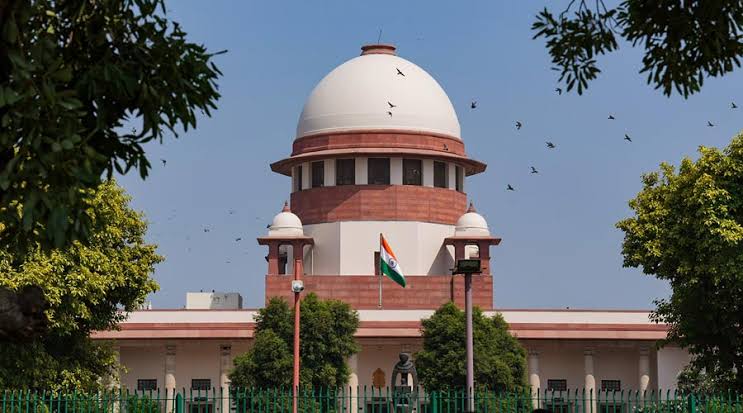As per a circular dated April 10, the Nitish Kumar-led Bihar Government removed the “murderer of a government servant on duty” category of prisoners by amending the Bihar Prisoner’s Manual, 2012. The amendment has specifically been made for the release of criminal-turned-politician Anand Mohan, as per the reports.
Opposing the petitions seeking legal recognition for same-sex marriages the government of India prested another affidavit. As per the document, the government argued that, that marriage is “an exclusively heterogenous institution” and that those seeking marriage equality in India merely represent “urban elitist views for the purpose of social acceptance”. The voices are not coming from the common Indians, said the government.
The petitioners have sought the recognition of same-sex marriages under the law, arguing that the right to marry a person of one’s choice should extend to LGBTQIA+ citizens as well.
The centre said that the question of considering it equal to the existing concept of marriage “seriously affects the interests of every citizen”. A court order recognising same-sex marriages would mean a virtual judicial rewriting of an entire branch of law, the government argued. Additionally, they demanded that the Court must refrain from passing such “omnibus orders”.
These objections have been submitted by the government in front of a five-judge bench led by Chief Justice of India, DY Chandrachud. The others include Justices SK Kaul, Ravindra Bhat, Hima Kohli, and PS Narasimha.
The government as per the affidavit observed that “The institution of marriage is necessarily a social concept and a sanctity to the said institution is attached under the respective governing laws and customs as it is given sanctity by law on the basis of social acceptance. It is submitted that social acceptance and adherence to societal ethos, common values, and shared beliefs across religions, in case of recognition of the “socio-legal institution of marriage” is not be confused with majoritarianism.”
The government while opposing the demands said that “conventional and universally accepted socio-legal relationships like marriages across all religions, are “deeply rooted in the Indian social context and indeed is considered a sacrament in all branches of Hindu law. Even in Islam, though it is a contract, it is a sacred contract and a valid marriage is only between a biological male and a biological woman”.
The matter “raises critical issues as to whether questions of such a nature, which necessarily entails the creation of a new social institution, can be prayed for as a part of the process of judicial adjudication”, says the affidavit.
“It’s purely a matter of legislative policy under Entry 5 of List III of Schedule VII of the Constitution, which ought to be determined by the appropriate Legislature only,” the Centre emphasised.
Centre in its submission to the top court said that the Parliament will have to take into account “broader views and voices of all rural, semi-rural and urban populations, views of religious denominations keeping in mind personal laws as well, and customs governing the field of marriage together with its inevitable cascading effects on several other statutes”.
Other than the central government, similar views were expressed by the Islamic religious body Jamiat-Ulama-I-Hind, which said that notions like same-sex marriage originate from Western culture that has radical atheistic worldviews and the same should not be imposed in India.




















Comments